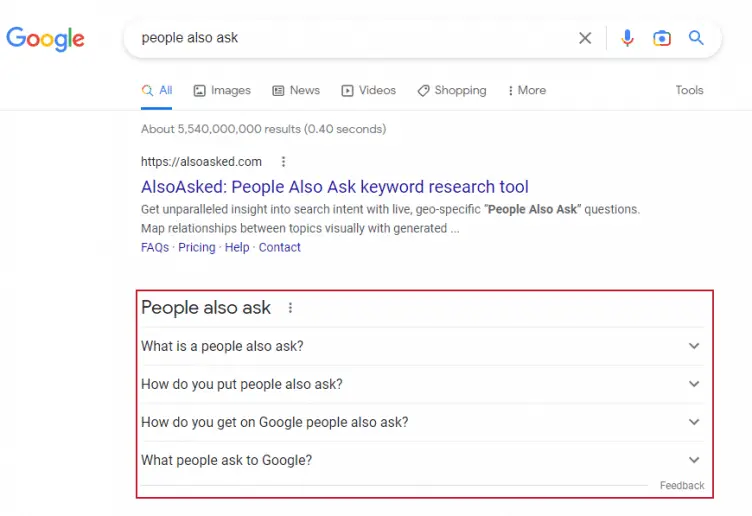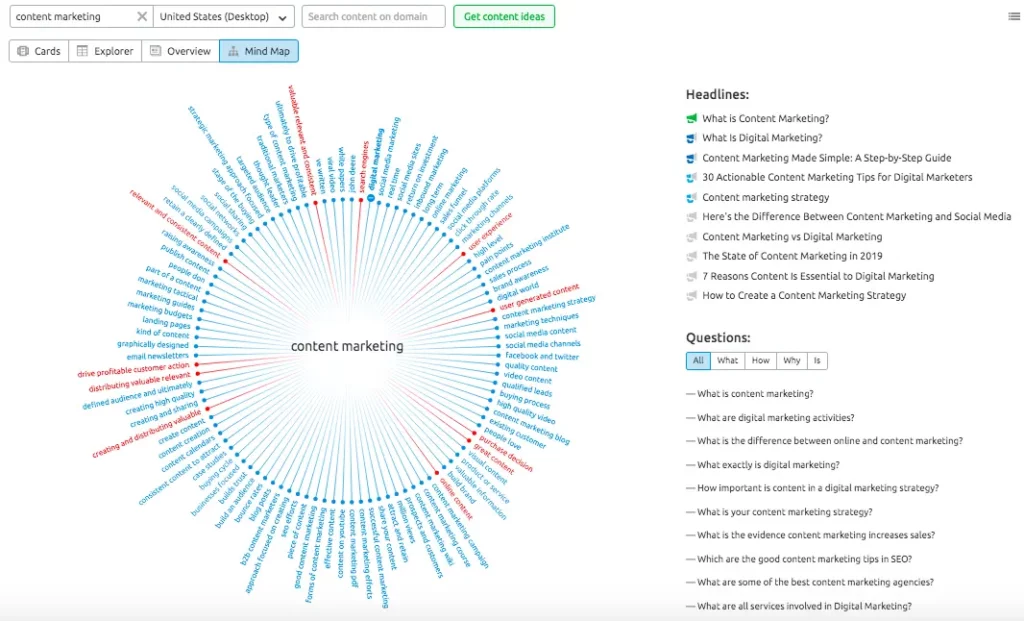The ability to effectively create content is the cornerstone for a successful content marketing campaign. And by effective content, we talk about web based content that regularly help address user queries by offering useful and relevant information on a particular topic.
Great content creation is not only about how well or engaging your write-ups are. Sure, good writing is important but one common factor that defines a good content is that they are backed by quality research.
Effective and efficient content research is the most important factor when it comes to writing for the web. After all, your content is the window through which your brand is defined.
With all that in mind, keep scrolling to read our step by step content research guide below. compiled a list of 13 recurrent practices that our writers use while creating content.
A Step by Step Guide to SEO Content Research
Writing for the web involves adhering to the content goals of an organization. While research is necessary, doing so in a step by step manner ensures unfirom quality of content. It does not only optimize your content for SEO but also also helps you scale.
So, follow this step by step guide on content research tips to create high-quality content every time.
1. Define the Goal of Your Content
Before conceptualizing your content strategy, it is fundamental to determine what is the end goal of your content marketing campaign. Are you writing just to increase the number of pages, inform users about news and updates related to your industry, generate lead or conversions?
Based on the goals and expectations out of your content marketing campaign, use content topics that best aligns with your brand.
As an example, to generate leads and conversions using content, full funnel content marketing should be your way ahead. Similarly, if brand awareness is the goal then high search volume keywords are something you can look out for.
2. Stay Updated on the Industry News
Creating content for the web is a laborious process if you are willing to do it right. For optimal performance each piece of content need to be thoroughly updated and offer information that is relevant to the user search intent.
And you can do that by staying thoroughly updated with the industry news and updates. We for instance keep an eye on websites and profiles of SEO experts who can offer us latest information about industry trends. This helps us optimize high quality content for clients while enhancing your own organic performance.
3. Check Out What is Trending

It is becoming increasingly important for content marketers to pay attention to industry trends while conceputalising different content strategies. To ensure that your content is able to attract as much traffic as possible, you should target high volume trending keywords that cater to your niche.
You can use Google Trends in this case to find out exactly which keywords are working in your domain and which ones are not. This ensures that you are targeting the right keywords and able to get the most out of the target traffic.
4. Perform Keyword Research
To create impactful content that reaches maximum of your audience, mastering keyword research tools are crucial. It comes at the beginning in your content research journey. After you have decided on the topic, it is time to find out the potential keywords out of the topic.
Start with tools like Ahrefs and Wordstream to zero in on the high volume keywords in your industry. Once the primary keyword is determined, you can choose the secondary keywords to cover a wider scope of audience as well as their search queries. This way you can ensure to drive increased organic traffic to the website.
5. Competitor Analysis
Having a thorough idea about who your competitors are and tracking their strategy is an important part of the content research process. With the set of keywords chosen, now proceed to search for them and track your competitors. Identify what type of information they are offering through their content.
Look for the common factors and information that you can find across all the related searches. These are the information that you must include in your content in order to ensure visibility on the SERP.
6. Identify Credible Sources
When it comes specialised types of content, ensuring the credibility of the information is essential. Realistically speaking, one may not be an expert in a domain and are still required to write on it. This often results in writers including outdated data or information that does not strictly align with the topic.
Because, let’s face it, they will be gathering the info from the top SERP results and if the ranking results have an error, it might reflect on your website’s content as well. To avoid this, always ensure that sources of an information are verifiable and coming from trustable sources. A good practice, to avoid the errors, is to cross-refer and verify your data with other sources.
7. Find out Knowledge Gap in the SERP Results
Here comes the most creative and critical of all the steps to produce effective online content. Browse through the pages ranking on top of the SERP and find out content gaps. The gaps can be in terms of – knowledge, lucidity or something else. Most of the times, a strong content goes the extra mile to address the user pain points.
And that is what it takes to create great content that resonates with your target audience and helps them.
8. Analyse the People also Ask (PAA) Section

To create a valuable content, one does not have to go out in the field to conduct primary research. Most of times, content creators just need to get an idea of the things that users are actively looking for. And the People also Ask (PAA) section on Google SERP can do a great job about that.
9. Check Out Social Media & Forums
Generating content ideas can be tricky in a competitive industry. Especially when you need to give that extra attention to ensure rankworthiness, no stones can be left unturned in the research process. Online forums, social media platforms, particularly reddit proves useful to find latest and updated information.
10. Go through Scholarly Repositories for Latest Data and Statistics
For competitive industries like finance and technology, offering updated and relevant insights can be a game changer. Especially if the search results are quite saturated in your domain, then offering latest data can be a crucial part of your marketing strategy.
It not only establishes you as a competent authority among your competitors but also creates the opportunity to outrank other players and climb the SERP ladder.
11. Create a Content Outline
Once you have got the basic resources to realize your content ideas that will help you with your content marketing goals, it is time to create the outline. You can use Answer the Public, Answer Socrates to find out relevant subheads or questions that you need to address the user pain points.
12. Pay Attention to Consistent Distribution of information
Uniform and consistent information distribution has a vital role to play in ensuring the performance of a content. Many people do not realize this, but a content that follows a logical infromational structure is easier to read and helps improve comprehensibility.
It actually helps you reduce bounce rate on the website and helps you receive more scroll depth and increased engagement. You may follow the inverted pyramid structure of journalists where the most important information is given at the first and then follows lesser important ones.
Or information followed by examples are also a useful way to improve your content research and make it more reader-friendly.
13. Edit & Improve
Finally, this one may seem like a generic advice. But we assure you, it isn’t. In the hubbub of research and writing, editing may appear to be a redundant task. However, not all the good ideas come at once.
It so may happen that you have missed one pointer or have found a new data that corroborates to your argument. In such cases, editing becomes the de facto way to enhance your content quality. Equipped with proper research around the topic, editing gives you the scope to improve the semantic SEO and infuse each piece of content with more value.
What are the Best Tools & Techniques for Content Research
Once we have figured out the basic steps to conduct content research effectively, let us look into the different tricks and content research tools that can not only streamline your content marketing strategy but also help you save much time.
1. Scan the SERP of Different Search Engines
Gone are days when only one search engine would dominate the market. If you compare multiple search engines, Bing tends to outperform Google in many cases – offering more nuanced, updated and recent content.
This ensures that you can get a comprehensive knowledge on the topic at hand. Referring to multiple search engines ensure a seamless content creation process.
2. Use SEMRush & Ahrefs to Dive Deeper

To perform effective content research, content strategists and writers can take help from leading tools in the market. Tools like Ahrefs, SpyFu, SEMRush are some of the popular and effective ones to offer comprehensive insights about the competitors.
This helps you with the research process. By learning about the top competitors against the target keyword, you can have an idea about everybody else is doing to get the rank. Now it all boils down to how far you can one up the competitors to claim your position.
Not sure how? Get in touch with the content experts!

3. Check Out Answer the Public or Answer Socrates
If you are willing to create the right content that stands out in the crowd, you will have to do something new – something which has not been done before to claim the top position on the SERP. For such innovative content, you can take cues from Answer Socrates or Answer the Public.
While Answer the Public offers only limited number of free searches, Answer Socrates is virtually free and gives you related questions and search queries against a given topic. This proves to be a handy little tool if you struggle with making the content outlines for your articles and looking for efficient ways to create them.
With these, you can create the right content format that engages your audience and delivers them value.
4. Use Notion to Collaborate and Create Together
From strategy to content creation, it can appear a behemoth of a task for a single person. Exactly for this reason, a collaborative approach can help you streamline the process. Collaborating tools like Notion can become a lifesaver for content strategists, writers and SEO personnel to work together on a project.
Collaborative content creation allows strategists to perform a realtime content audit evaluating if the curated content aligns with the organization’s long term goals. Besides subject matter experts can utilize these tools to ensure if the content adds up enough value for the topic. Further, it enables both the SEO and the writer to seamlessly work with each other and avoid unnecessry bottlenecks.
5. Refer to NLP Based Tools for Advanced Optimization
Now if you want to take your content research a step further to absolutely ensure performance, get help from some of the NLP based content optimization tools. Tools like Small SEO Tools, Frase AI further improves your research by scanning the top SERP results and offer a list of subheads, common phrases and terms used by them.
This increases the ranking potential and helps you improve the LSI incorporation within the context. However, one must be mindful about incorporating the suggested phrases. Tactless usage of the phrase can be a serious problem that will negatively impact your performance although on paper it would look fine.
Takeaway
Having gone through the important steps and tips to perform content research, you should be all equipped to produce in-depth content that performs seamlessly across different platforms and search engines. After all, without visibility content marketing efforts are basically a failure. So, ensure to keep these steps in mind to deliver seamless performance across mediums and platforms.
Frequently Asked Questions
1. What is the work of a content researcher?
A content researcher has the duty to gather, analyze and organize relevant information to help create quality content.
2. How to research content for SEO?
SEO content research is all about identifying the target audience and relevant keywords while keeping an eye at serving the user search intent.
3. How to become a content researcher?
To become a content researcher, one needs to polish their creative and analytical skills. A content researcher must also be adept at using different SEO and content tools. Finally, they should have hands-on knowledge of working at different projects.
Subhodip Das is the founder and CEO of Das Writing Services Pvt. Ltd. He has an experience of 12 years in the field of Digital Marketing and specialises in Content Writing and Marketing Strategies. He has worked with well-established organisations and startups helping them achieve increased Search Engine Rank visibility. If you want to grow your business online, you can reach out to him here.




Leave a comment
All comments
Sakshi sarvang
Hi, I’m an SEO content writer myself and deeply appreciate your efforts in writing this blog. However, I think you could have added more depth by adding bullet points and relevant pictures to make it easy for readers to understand.